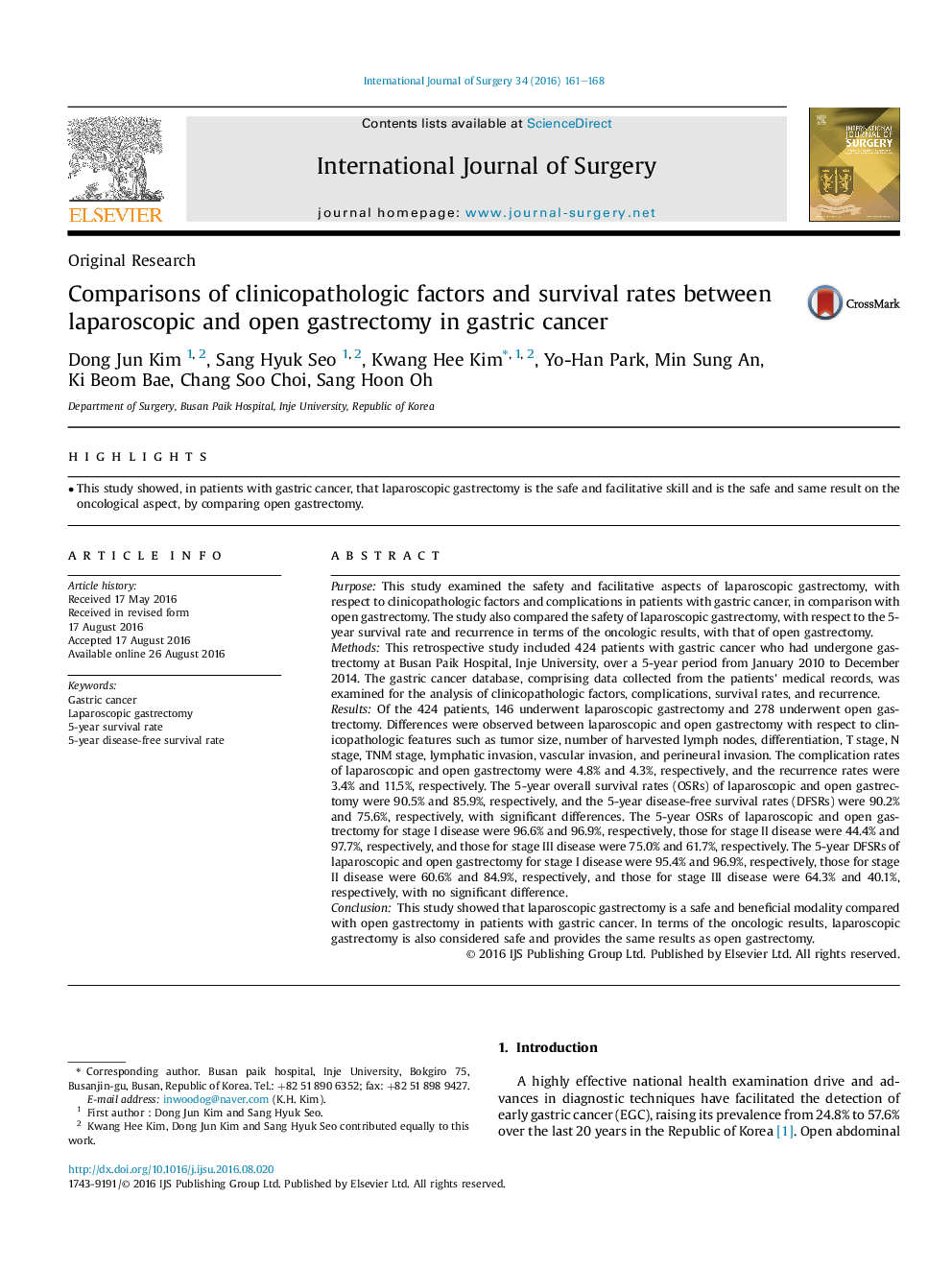| Article ID | Journal | Published Year | Pages | File Type |
|---|---|---|---|---|
| 4285280 | International Journal of Surgery | 2016 | 8 Pages |
•This study showed, in patients with gastric cancer, that laparoscopic gastrectomy is the safe and facilitative skill and is the safe and same result on the oncological aspect, by comparing open gastrectomy.
PurposeThis study examined the safety and facilitative aspects of laparoscopic gastrectomy, with respect to clinicopathologic factors and complications in patients with gastric cancer, in comparison with open gastrectomy. The study also compared the safety of laparoscopic gastrectomy, with respect to the 5-year survival rate and recurrence in terms of the oncologic results, with that of open gastrectomy.MethodsThis retrospective study included 424 patients with gastric cancer who had undergone gastrectomy at Busan Paik Hospital, Inje University, over a 5-year period from January 2010 to December 2014. The gastric cancer database, comprising data collected from the patients' medical records, was examined for the analysis of clinicopathologic factors, complications, survival rates, and recurrence.ResultsOf the 424 patients, 146 underwent laparoscopic gastrectomy and 278 underwent open gastrectomy. Differences were observed between laparoscopic and open gastrectomy with respect to clinicopathologic features such as tumor size, number of harvested lymph nodes, differentiation, T stage, N stage, TNM stage, lymphatic invasion, vascular invasion, and perineural invasion. The complication rates of laparoscopic and open gastrectomy were 4.8% and 4.3%, respectively, and the recurrence rates were 3.4% and 11.5%, respectively. The 5-year overall survival rates (OSRs) of laparoscopic and open gastrectomy were 90.5% and 85.9%, respectively, and the 5-year disease-free survival rates (DFSRs) were 90.2% and 75.6%, respectively, with significant differences. The 5-year OSRs of laparoscopic and open gastrectomy for stage I disease were 96.6% and 96.9%, respectively, those for stage II disease were 44.4% and 97.7%, respectively, and those for stage III disease were 75.0% and 61.7%, respectively. The 5-year DFSRs of laparoscopic and open gastrectomy for stage I disease were 95.4% and 96.9%, respectively, those for stage II disease were 60.6% and 84.9%, respectively, and those for stage III disease were 64.3% and 40.1%, respectively, with no significant difference.ConclusionThis study showed that laparoscopic gastrectomy is a safe and beneficial modality compared with open gastrectomy in patients with gastric cancer. In terms of the oncologic results, laparoscopic gastrectomy is also considered safe and provides the same results as open gastrectomy.
